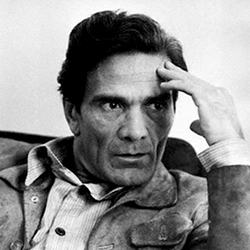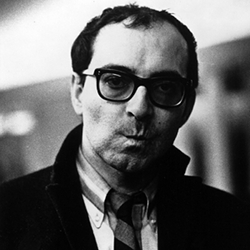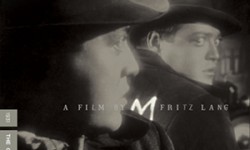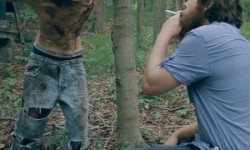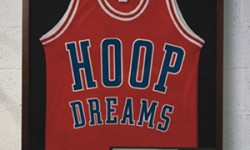
Reel Indie Film Festival Review: In Search of Blind Joe Death - The Saga of John Fahey (2013)

Director: James Cullingham
Country: Canada
Genre: Documentary | Biography | History | Music
Editor’s Notes: The following review is part of our coverage of the Reel Indie Film Festival. For more information on the festival visit http://reelindiefilmfest.com/ and follow the event on Twitter at @RIFF_Toronto.
In Search of Blind Joe Death: The Saga of John Fahey chronicles the life, music and personality of influential but obscure musician John Fahey. Here is a man that, if he had wanted to, could have revolutionized the art of guitar playing on a grand scale but chose to just do his own thing and not be beholden to the pressures that would have gone along with that.
I first became aware of John Fahey around 2002 when I picked up a boxed set entitled “The World of Charley Patton” (after first hearing Patton in 2001, he became so influential to me that I named my only child after him just three years later). The CD collection not only housed all of the recordings of that legendary blues man and some tracks of his contemporaries, it came with a Master’s thesis penned by Fahey which was the first scholarly exploration of Patton.
After that, I didn’t really know too much about him. His music was rather obscure and difficult to obtain for a college student on an extremely limited budget. His music didn’t show up on any file sharing platforms of the day and iTunes was still years away from being even remotely what it is today. This film was finally able to fill in the gaps about the man who so well detailed the music of an artist that meant so much to me.
Director James Cullingham does not go to great lengths to put any frills or stylish touches on his documentary. Instead, he lets the personality of the subject carry the film, and the legend of Fahey more than amply does this.
The film itself isn’t much in terms of style or technique. Director James Cullingham does not go to great lengths to put any frills or stylish touches on his documentary. Instead, he lets the personality of the subject carry the film, and the legend of Fahey more than amply does this.
Fahey, who died in 2001, is all throughout the film in the form of archive interviews and concert performances. Many of the people who worked with him and were influenced by him appear to recount how they fell into his odd style of guitar playing. Most prominent of these interviewees is Pete Townsend of The Who.
The film documents the recalcitrant idleness of a man who was supremely talented, spoke like Mystery Science Theater 3000 creator Joel Hodgson and looked (in his later years) like Francis Ford Coppola. His guitar style is difficult to pin down, but it is rooted in American roots and blues which can be heard in his playing.

He took the styles of these old blues performers and started adding flourishes of his own, harmonies that were not present in the original recordings and ended up making something totally unique. In his later years, he took to more experimental music that was bizarre and as unusual as his earlier work.
The film does a wonderful job of packing in a lot of information in its relatively short run time of 58 minutes. We hear from Fahey more than we do anyone who knew him, but despite that we still never really get much insight into what he wanted to achieve with his music and how he developed it. This may stem from his unwillingness to explain, rather to let the music do his talking for him, or it could just be that he didn’t know. He seems, from this film, to just roll along and do whatever strikes his fancy at the time, whether he understands it or not. It also gave me another reason, other than the thesis on Patton, to admire Fahey. It turns out that he was responsible for rediscovering at least two if not more of my favorite blues performers: Booker T. Washington White (known as Bukka White) and Skip James.
With all the information we are given, there is still room for more. Some instances in his life are so briefly touched upon that without further exploration, it would probably have been best to leave it out or extend the film another half hour or hour. For example, Fahey states that his father was a pedophile and others state that he was sexually abused as a child, leading to alcohol and prescription drug abuse. These little tidbits of information are dropped late in the film and would warrant more discussion and perhaps earlier inclusion, but as quickly as they are brought up they are left behind so the film can get back to the later portion of Fahey’s life.
With all the information we are given, there is still room for more. Some instances in his life are so briefly touched upon that without further exploration, it would probably have been best to leave it out or extend the film another half hour or hour.
I think that is my biggest quibble with the film: that it should have been longer. That’s not a bad place to be in as a filmmaker, because lots of films could stand to lose 10-30 minutes. That said, it’s also not a great place to be in either, because the end of the film seems rushed as if Cullingham had a hard agreement not to exceed an hour so he packed in as much as he could and forewent any real in-depth examination of Fahey.
It’s that rushed feeling of the last 10-15 minutes that makes me think that the film may not really be finished. I think the George Lucas quote that “A film is never finished, only abandoned” is a truism here, because Cullingham should have expanded this piece to more fully encompass Fahey as a man as much as he does Fahey as an artist. We get a lot of facts about his beginnings and suppositions on his methods, people extolling his virtues and damning his demons and all of that is extremely entertaining to watch, but it does little to dig below the surface of why Fahey did what he did and how he did it.
In Search of Blind Joe Death: The Saga of John Fahey really is just a search that never really finishes. It’s a great starting point for people marginally aware of Fahey, like me, or people who have never heard of him, but it is not the definitive work on Fahey. I feel like there is more here to be discovered and learned about this man and because of this film, I am eager to find out as much as I can.









